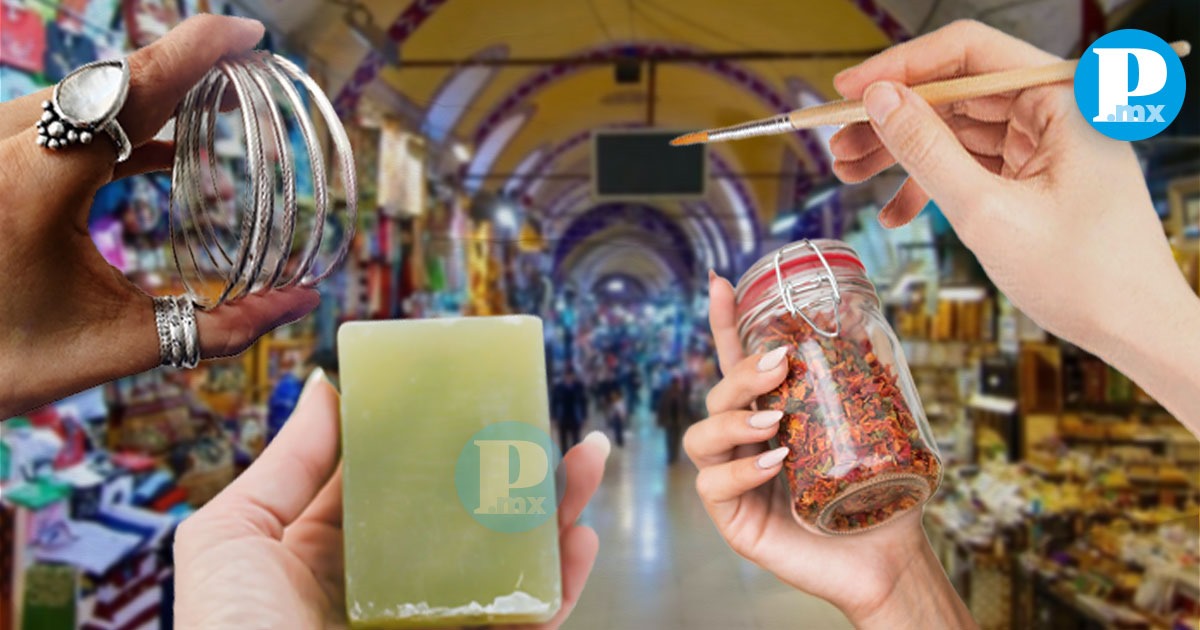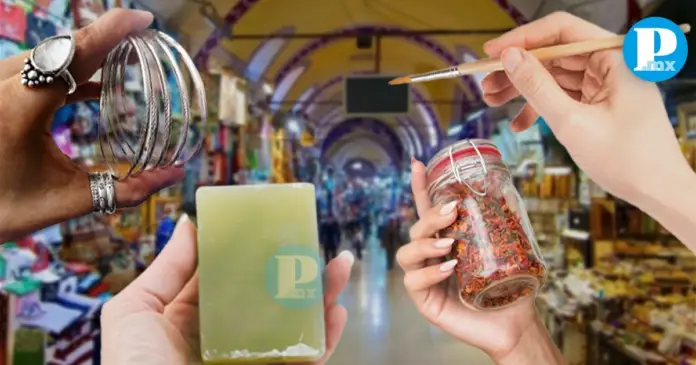
In recent years, Puebla has seen a notable increase in the presence of alternative bazaars. It is increasingly common to see entrepreneurs who, looking for extra income or a career change, choose to develop their own business through these spaces.
The culture of bazaars and markets in Puebla is growing, being well received by both entrepreneurs and consumers, who are looking for original and exclusive products. These spaces offer a platform for small businesses to display their creations and generate direct connections with customers.
According to data from INEGI, the Gross Added Value (GVA) of the informal economy in Puebla increased by 4.1%, which has driven the growth of bazaars, as well as online sales and home deliveries.
In El Popular, Journalism with a Cause, we interviewed teacher Mar Estrada, a social economist and academic at the Universidad Iberoamericana, and Reina Terán, owner of Naret, a women’s accessories business that began distributing its products at strategic points in the city and now has its own store in downtown Puebla.
Why did bazaars increase in Puebla?
The coronavirus pandemic caused 1.3 million Mexican women to lose their formal jobs, according to INEGI data, which boosted the practice of shipping commerce. Expressions such as “I’m going to close the order, neni” or “I’ll deliver at a nearby point, nena” became common among enterprising women, who began to be known as Nenis. After the end of the pandemic, many of them, with more established businesses, migrated to physical spaces such as bazaars to sell their products.
Teacher Mar Estrada explains to us that bazaars are a phenomenon that is part of a formal market. However, starting a business or selling through bazaars became a way to supplement income.
“Bazaars are the product of structural problems in our country, such as low wages and a lack of sufficient jobs. Furthermore, on the buyers’ side, the situation is similar: wages are not adequate, and more than half of the population earns less than two minimum wages,” said the teacher.
This phenomenon has integrated a new form of social economy, in which the products offered represent an economic and original alternative.
An accessible opportunity
Selling in bazaars has been seen as an option that allows balancing work and personal life, especially for those seeking to generate income that exceeds that of a formal job.
“Many people do not have anyone to leave their children with, since there is no daycare or social security system that guarantees their care. Therefore, they look for part-time jobs, and selling in bazaars is an accessible option, both for those who sell and for those who buy,” added the academic.
The rise of bazaars in Puebla reflects the lack of regulation in formal jobs, low wages and long work days faced by workers.
“Bazaars are the result of structural problems: lack of jobs, insufficient wages and an economic structure in which 1% of the population concentrates 30% of the country’s wealth. The companies that generate the most wealth do not pay taxes,” said Estrada.
Bazaars have become an economic alternative to the country’s major economic problems, providing a source of livelihood for many people from Puebla.
From Neni to owner of a store: Naret Lingerie and Accessories
Reina Terán is the owner of Naret, a business that began as an additional income to pay for her university degree, but which became her main source of work, with seven years of experience.
“Before Naret, I had several ventures whose goal was to pay for my degree in Modern Languages. I really liked online sales, and being a neni allowed me to grow. I never imagined how far I would go” Reina shared with us.
During the pandemic, Reina had to adapt her business to online sales, making deliveries at specific points in the city with the help of her husband. After the pandemic, she continued selling online and joined the bazaar community, dedicating the weekends to selling her products.
“At first, it was difficult for me to attend the bazaars because I had to move around with my baby. However, I always had the support of my family, which allowed me to continue with the business” Reina said.
She recognizes that starting a business is not an easy process, and that it involves a lot of effort and time management. She also noted that bazaars are often associated with old or used products, which is a stigma she has had to break.
“This business has allowed me to show that the products I offer, such as lingerie, are of quality and are not used. In addition, the community I have formed on Instagram is very large and has always supported me well.”
An entrepreneurial community
Reina highlighted that in the bazaars a strong community is created between entrepreneurs, who support each other and advertise the different businesses that participate. In addition, she pointed out that today not only girls are present in the bazaars, but also many men who work with their partners or start their own businesses.
“Sometimes, men do not find products for themselves in the bazaars and they leave, but I think we need to promote a greater culture of inclusion so that they also feel welcome” she commented.
Finally, Reina acknowledged that, although entrepreneurship is not easy, the culture of online sales and bazaars has grown, and customers see in them an opportunity to acquire unique products at affordable prices. He also noted that regulations are accessible and the community is friendly and supportive, which encourages more people to start their own business without fear.
Source: elpopular






